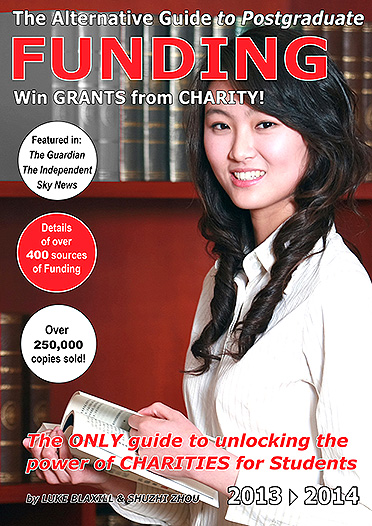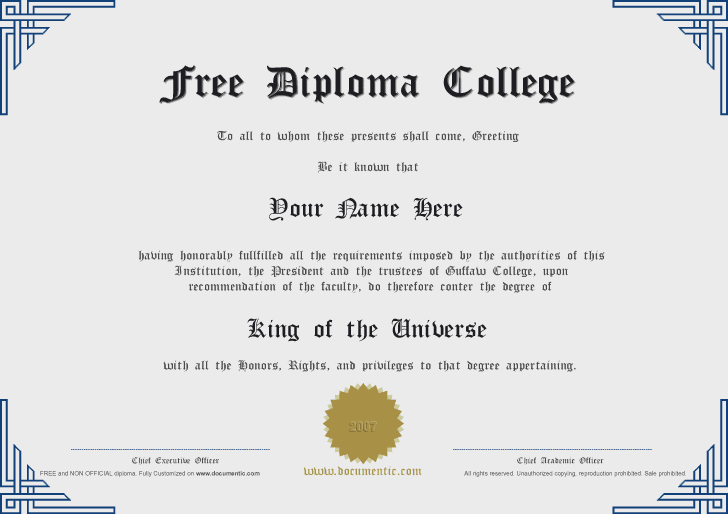
If you’re a penultimate or final year student, you may well feel that applying for a graduate scheme with a large recruiter is the only career option available to you. This is because these organisations have very large budgets and can afford the kind of publicity that is probably appearing everywhere you look on campus. It’s also possible that friends and flatmates are busy filling in the lengthy application forms required for these schemes, or that parents are advising you to apply as a ‘safe option’.
However, the truth is that only a minority of graduates secure these jobs. PwC reported receiving 30,000 applications for only 1,200 available positions and, while they seem like a secure option, you only have to look at the current problems with The Co-operative, for example, to realise that the graduates who started their training schemes with this group may now be reconsidering their position. Realistically, your job is only ever as stable as the notice period you are obliged to be given before being handed your P45.
The most important aspect of career planning is choosing something that not only matches your skill set but that you will also enjoy. So, if you think that a graduate scheme isn’t for you, here are a few alternatives to consider.
Working for an SME or start-up
A small to medium-size enterprise (SME) employs up to 250 employees, but you could be working with as few as two or three people in a small business, so it’s possible to make a significant contribution and feel that you are making an impact. You could also gain responsibility much sooner than through a graduate scheme if you can prove the quality of your work. Many graduates now run their own businesses and know first-hand the skills and talent that you could offer. They won’t have the budgets to advertise any vacancies though, so you’ll need to get networking, search for opportunities via social media and approach businesses directly. Make sure you’ve done your research into the company and be clear about how the skills and experience you have to offer match their requirements; remember that it’s about what you can do for them, not what they can do for you.
Taking a non-graduate job
There are sectors such as media where you simply won’t be able to find a graduate scheme. You have to work your way up and make the most of work experience or internship opportunities to be able to make contacts and build your portfolio. Taking a non-graduate job can be a useful way to get your foot in the door, but you need to network and build your reputation if you want to get ahead. It is wise to have a Plan B if you take this route, in case your progress is limited. If you opt for unpaid experience, make sure that the potential benefits outweigh the costs and that you are not being asked to undertake unreasonable duties.
Graduate internships and work experience
Recruiters have realised that graduates may not have committed to a career path by the time they leave university, so you will also find vacancies labelled ‘graduate internships’. These structured programmes, often lasting six months to a year, are a great way to try out a role or sector and gain valuable experience before deciding what you would like to do more permanently. You can also ask organisations that interest you about work experience opportunities even if they are not advertising specific vacancies; see our web pages on making speculative applications. Have a look at the UoB Internship Scheme to see a range of current opportunities.
Postgraduate study or retraining
If you are considering this option, then be sure to check with potential employers if they need you to take a higher degree or postgraduate diploma in the first place and, if so, which particular courses they recommend. Many students are surprised to find out, for example, that consulting firms don’t require a business Masters and that you can apply with a wide range of degree subjects. If you don’t do your homework, further study can be a costly mistake as well as an extra year out of a very competitive labour market. Don’t make assumptions about what might put you ahead of the game, given that many recruiters now see work experience as a greater enhancement to your CV than more qualifications.
Also, bear in mind that academic options are not the only ones available. You can study more vocationally as a chef, costume maker or personal trainer, for example, to move your career forward, and this could be more cost-effective and take up far less of your time. Funding is challenging to find for further study, but Professional and Career Development Loans are worth a look, especially to cover shorter, more vocational courses. We also have information on our web site to help you find potential sources of financial support.
Taking a year out
Many students ask us how employers view a year out after graduation. Generally, employers tell us that they don’t mind at all, especially if you come back with new skills gained from work experience or travel and are now ready to settle down and focus on the job. Better to get that urge to volunteer in Africa for six months out of your system now than to start work and realise that your next holiday won’t be longer than a fortnight.
Being self-employed or working as a freelancer
Finally, if you have a skill, product or service that you think you could sell, it’s always worth looking into being self-employed. It’s not as hard to set up a business as you might think, but keeping things going could be a challenge unless you are very self-disciplined and are prepared to market yourself. The University’s Research & Enterprise Development (RED) department can help students and graduates to set up their own businesses, provide working space and offer valuable advice on all the essentials such as developing a business plan and managing your accounts. Get some work experience in a start-up (see above) to see if this way of working would suit you. The Careers Service also has several books on self-employment in its library, including the very useful Brilliant Freelancer, if that option appeals.
And there you have it – a wide range of options other than graduate schemes to explore. If you’re not sure about your next step, come in to Careers and speak to our staff about how to find the information and guidance you need. Good luck!
Dr Tracy Johnson, Careers Adviser
(Image sourced from: http://suzanneevans.org/2014/01/the-choices-you-make)




